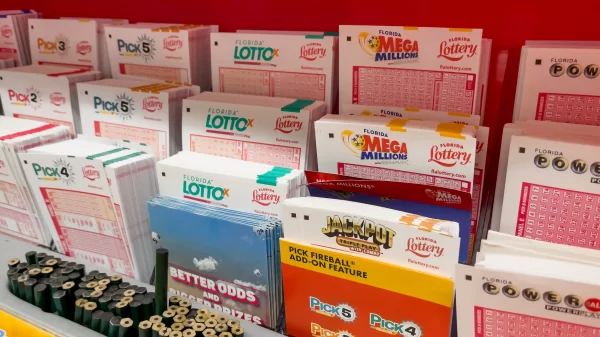By Chandler Walker
Alabama Political Reporter
The following article is part of APR’s on-going series on gaming and the lottery:
Lotteries have been staples in certain states’ economies since the early 1960s, when gambling became a more legalized practice. The sale of lottery tickets has been able to provide ample revenue across the country, which is normally divided between general state funds and education, with education being one of the more popular departments to receive funds. Lotteries have been able to take the place of increased taxation while allowing the general population to partake in contributing to the government with a recreational approach.
There are several myths surrounding lotteries and why they are viewed as either positive or negative aspects in communities. According to the North American Association of State and Provincial Lotteries, one of the more well-known falsehoods is that the lottery is a method of taxation.
“A tax is compulsory payment to support government,” the NASPL wrote. “Citizens have no option in contributing to state revenue with mandated levies and other tariffs. … Playing the lottery is entirely voluntary. Whether as a regular purchase or as an occasional play, buying a lottery ticket is an individual choice just like buying any other product.”
A lottery is one of the factors in place to actually prevent having to raise taxes in certain states. It is not a form of taxation, and nobody is forced to participate in any lottery games.
Another myth regarding the lottery is that the odds of actually winning are less than that of being struck by lightning.
“… Over a recent three-year period, there were 82 winning tickets that shared, or won outright, a Powerball or Mega Millions jackpot,” the NASPL stated. “Beyond jackpots, more than 1,300 tickets won at least $1,000,000 on either Powerball or Mega Millions from 2013 to 2015. For the three similar reporting years, the National Oceanic and Atmospheric Administration (NOAA) reports 67 lightning fatalities in the United States where the game are played.”
There is a much better chance of winning a lottery or jackpot than there is to being struck by lightning in a storm.
Something that is also highly assumed of modern types of gambling is that by allowing easy access to online and mobile gambling, the amount of gambling addictions and underage gambling will rapidly increase.
“In many respects, online lottery sales provide a MORE responsible platform due to a key element that’s not available at retail-imposed limit setting. … There’s no way we can track how much an individual spends at a retailer on a given day – but through the internet we have this ability, and can throttle down how much a person spends. This is in addition to other activities laid out in the National Council on Problem Gambling’s Internet Gambling Standards that include self-exclusion, time outs and informed decision making to name a few. Stringent age verification measures at registration – including checking numerous databases – combats underage gambling issues,” the NASPL said.
Frequent questions that are asked regarding lotteries and the effects that they have include:
- What entity regulates the lottery and its proceedings?
- Doesn’t the lottery target the poor and uneducated?
- Can I participate in a lottery in another state if mine does not have one?
Lotteries and forms of gambling are regulated by either local or state level forms of government. It can differ depending on how the lottery was initiated into state law.
Research gathered by the NASPL showed that some of the strongest gamblers reflected the populace from their surrounding areas. There is no greater chance to encounter someone poor and addicted to gambling than it is to come across an educated non-addict.
Players from non-legalized lottery states can be drawn to win jackpots, purchase scratch-off tickets or play gambling-based games in states where the lottery is legal. Anybody of legal age who wishes to make the trip to a state where the lottery is legalized is eligible to participate in said lottery.
Lotteries and gambling have provided forms of entertainment, increased income within local governments and state funds and assisted in repairing damaged economies.
“Not everyone wins a jackpot or a life-changing prize, of course, but millions of players win every day. Which brings us to the whole idea of why people play the lottery in the first place. Lotteries provide fun and exciting entertainment that lets players dream about what they would do if they won. In our stressful world, the ability to dream is well worth the price of a lottery ticket,” the NASPL concluded.


















































